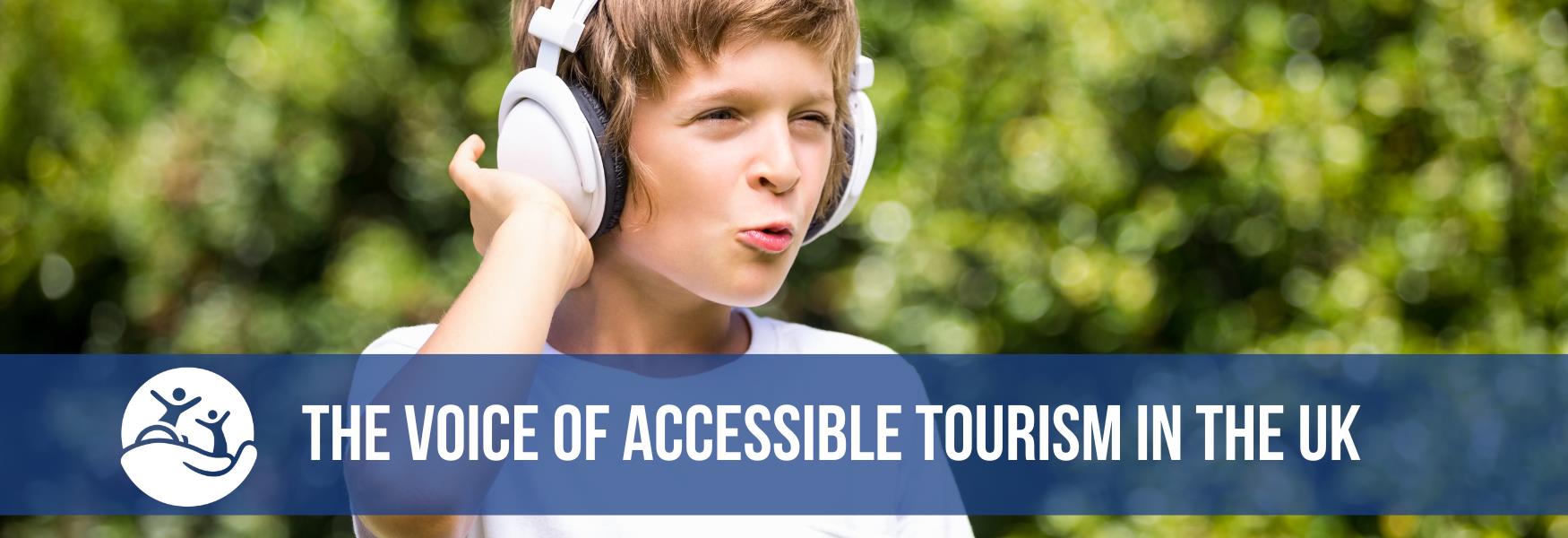

You are here: Advice for Businesses > Questions and Answers
Disability in sociey
In 2022/23 24% of the UK population were estimated to have a disability (Family Resources Survey, DWP)
Yes, less than one-in-ten of children aged 9 or younger were reported as having a disability in 2022/23 compared with 58% of those aged 80+ (Family Resources Survey, DWP)
No. Disability comes in many forms. Slightly less than half (48%) of those reporting a disability in 2022/23 said this related to mobility, while 34% reported a mental health impairment and around one-in-eight a sight or hearing impairment. (Family Resources Survey, DWP)
Disabled people and tourism
Disability in sociey
In 2022/23 24% of the UK population were estimated to have a disability (Family Resources Survey, DWP)
Yes, less than one-in-ten of children aged 9 or younger were reported as having a disability in 2022/23 compared with 58% of those aged 80+ (Family Resources Survey, DWP)
No. Disability comes in many forms. Slightly less than half (48%) of those reporting a disability in 2022/23 said this related to mobility, while 34% reported a mental health impairment and around one-in-eight a sight or hearing impairment. (Family Resources Survey, DWP)
Disabled people and tourism
The latest data comes from a Visit England survey in 2018. (New survey data should be published before the end of 2024.)
- £15.3 billion was spent in England in 2018 on trips taken by those who have an impairment, or who are part of a group where a member has an impairment.
- Trips taken by those with an impairment and their travelling companions made up: 2% of all inbound trips in 2018, 15% of domestic overnight trips in 2015 and 20% of day visits in 2018.
In 2023/24 68% of adults in England who do not have a disability took a domestic overnight trip for leisure, whereas for those that do have a disability the figure stood at 57% (DCMS Participation Survey).
The average length of stay per domestic overnight trip is 2.9 nights for all trips, compared to 3.3 nights for trips taken by those with an impairment and their travelling companions. (VisitEngland)
The average spend per domestic overnight trip is £191 for all trips, compared to £210 for trips taken by those with an impairment and their travelling companions – the difference being largely accounted for by length of stay. (VisitEngland)
In 2023/24 11% of those who had not visited a heritage site in the past 12 months said this was due to a health problem or disability, while 10% reported that this was the reason they had not visited a museum or art gallery. (DCMS Participation Survey)
19% of adults in Great Britain reported in July 2024 that a potential barrier to taking a domestic short-break or holiday in the next 12 months was their general health. (VisitEngland)
The last survey estimated that 430,000 GB adults are prevented from taking a trip due to the lack of accessibility provision. If each person with an impairment currently not travelling due to accessibility issues took a domestic holiday this would generate £116.7m of additional revenue. (Visit England, 2017)
This will depend on the nature of the disability and the degree of prior knowledge of the destination being visited, but research shows that disabled travellers place greater emphasis on the trip planning stage than non-disabled travellers. So, it is important that businesses provide information about how accessible their business is and present it in an accessible manner.
The Visit England Accessible and Inclusive Tourism Toolkit for Businesses (Section 6) provides guidance on information provision and communicating with customers.
https://www.visitbritain.org/business-advice/make-your-business-accessible-and-inclusive/visitengland-accessible-and-inclusive-6#accessibility-guides
The wide variety of accessibility needs is as wide as the different types of disability. A person with mobility challenges may not be hindered by background noise when conversing with a waiter or waitress but the same will not be true for someone with a hearing impairment. Finding a hotel room may be a challenge to both an individual with a memory impairment and one with a visual impairment but for different reasons.
Business benefits of being accessible
Actions that can enhance the experience of a disabled person might relate to information, interactions or infrastructure.
The Visit England Accessible and Inclusive Tourism Toolkit for Businesses provides some simple and cost -effective suggestions for improving accessibility.
Being accessible can generate revenue, bolster the resilience of your business and enhance its reputation. TFA refers to this as the ‘Three Rs’ and you can see more information on our advice for businesses page.
https://www.tourismforall.co.uk/charity/advice-for-businesses
There is no definitive answer as this will depend on the nature of investment made and how this improved accessibility is then communicated to the market. For example, small improvements in your communications, website and in low-cost training may well generate a more positive response among some segments and therefore a higher ROI than more expensive physical adaptations.
There are many case studies of attractions and accommodation that have improved their accessibility in the Visit England Accessible and Inclusive Tourism Toolkit for Businesses
These case studies highlight how small adaptations in accessibility can generate a hugely positive response amongst consumers.
Importance of tourism to the UK economy
Travel and tourism is forecast to contribute 10.3% of UK GDP in 2024 (WTTC)
Travel and tourism is forecast to account for 4.1 million UK jobs (11% of the total) in 2024 (WTTC)
The Tourism Alliance estimates that the tourism industry in the UK in is made up of 300,000 businesses.
In 2023 the number of visits to the UK by overseas residents was an estimated 38.0 million
In 2023 the value of inbound visitor spending was an estimated £31.1bn
In 2023 there were 15.9 million inbound visits for a Holiday, 12.8 million to Visit Friends or Relatives, 6.5 million for Business and 2.8 million for miscellaneous reasons including Study. (VisitBritain)
The latest data for domestic day and overnight trips is for 2019:
Yes, especially inbound tourism, as in 2023 London is estimated to have accounted for 53% of all inbound visits and 54% of visitor expenditure (VisitBritain)
Read LessVisitBritain/VisitEngland plays a vital role in positioning the UK as a top global destination,…
Goodtogoinsurance.com are experts in travel insurance cover for all types of medical conditions and…
We are Great Western Railway – or GWR for short – one of the largest train companies in Britain.…
TransPennine Express is the intercity train operating company for the North of England and into…
Mobility Hire is a leading supplier of rental mobility equipment across the UK. We offer short-term…
Mobility Hire is a leading supplier of rental mobility equipment across the UK. We offer short-term…
Adapted Vehicle Hire Ltd is the premier source of rental customised adapted vehicles tailored to…
As the UK’s leading wheelchair accessible vehicle (WAV) provider, Allied Mobility know how…
Established since 1988 GM Coachwork are wheelchair accessible vehicle specialists in Devon…
VisitBritain/VisitEngland plays a vital role in positioning the UK as a top global destination,…
Goodtogoinsurance.com are experts in travel insurance cover for all types of medical conditions and…
We are Great Western Railway – or GWR for short – one of the largest train companies in Britain.…
TransPennine Express is the intercity train operating company for the North of England and into…
Mobility Hire is a leading supplier of rental mobility equipment across the UK. We offer short-term…
Mobility Hire is a leading supplier of rental mobility equipment across the UK. We offer short-term…
Adapted Vehicle Hire Ltd is the premier source of rental customised adapted vehicles tailored to…
As the UK’s leading wheelchair accessible vehicle (WAV) provider, Allied Mobility know how…
Established since 1988 GM Coachwork are wheelchair accessible vehicle specialists in Devon…


© Open Britain 2025. All Rights Reserved



